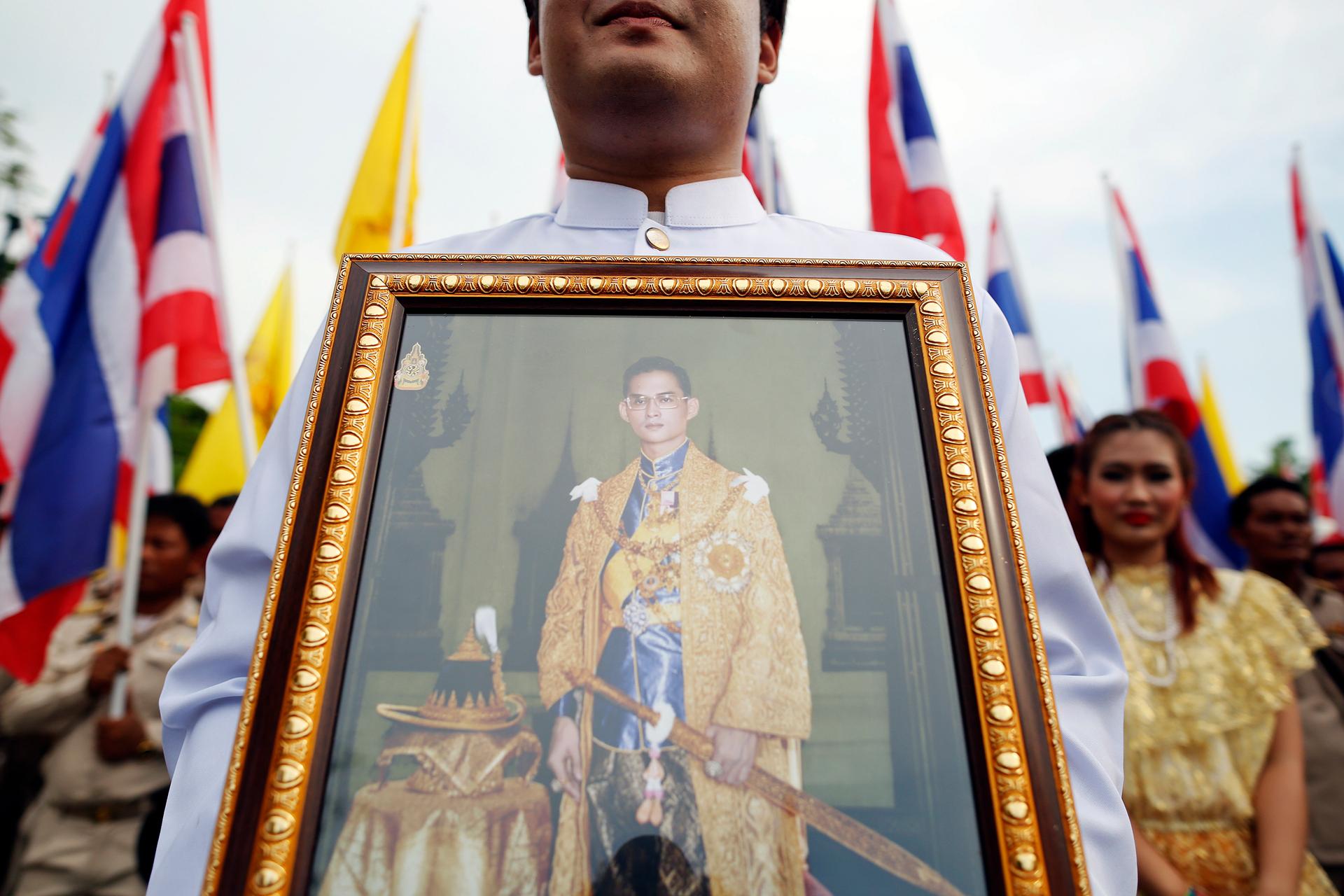The current crisis in Thailand is about a monarchy no one will talk about
A well-wisher holds a picture of Thailand’s King Bhumibol Adulyadej as he joins anti-government protesters gathering outside the Grand Palace on Coronation Day in Bangkok May 5, 2014.
Thailand has been in a full-on political crisis for months.
Dozens of anti-government protestors have been killed in clashes with police. The elected Prime Minister Yingluck Shinawatra was forced to step down after being convicted of abusing her power by the country’s Constitutional Court. This week, the Thai military declared martial law.
Many worry the country is headed for another military coup — Thailand has endured 18 coups in the last eight decades.
The causes for the unrest in the country are complicated — and hotly debated. But the one thing no one is talking about, says freelance journalist Andrew MacGregor Marshall, is the role of Thailand's royal family.
That’s because it's illegal in Thailand to criticize the country's royal family.
“In Britain or many other monarchies, if people defame the monarchy then there are laws in place, but in Thailand it is quite extraordinary, it has become a personality cult. Unless you praise the royal family and avoid these taboo subjects, then you are likely to be jailed,” Marshall explained.
Marshall is a victim of those laws himself. In 2011, he left his job at Reuters where he was covering Southeast Asia to publish articles critical of the Thai monarchy. Today, he cannot return to Thailand.
The biggest taboo of all, said Marshall, is the subject of the royal succession. King Bhumibol is 86 years old. His health has been very poor for some time. And while the king is a beloved figure in Thailand, many Thais aren’t fans of his son, the Crown Prince Vajiralongkorn.
But even more than who will take the throne, Marshall said, the controversy around the succession is about the royal inheritance.
“The Thai monarchy is immensely wealthy; it controls about $40 billion of wealth — as a conservative estimate. And so, on one level, Thailand’s crisis is a battle to decide who will become the next monarch after the current king dies,” said Marshall.
For centuries, Marshall said, Thailand has been ruled by an elite class that has links to the palace.
“And for centuries the lower classes of society have accepted that they are at the bottom rung of the ladder and have no power,” Marshall added.
This dynamic is changing, though, in an increasingly globalized world when more of the lower classes are gaining access to the Internet and the outside world.
“They’ve seen more of the world and they’re not willing to accept that they should be treated as serfs at the bottom of the ladder, they want their votes to be counted and the old elite are very uncomfortable with this,” Marshall said.
The tension between rich and poor and the royal future are fueling the explosive situation in Thailand, Marshall argued.
“So there’s a democracy element to the crisis where the old elite really don’t want democracy because that would be a dilution of their power. But there’s also a huge money element, where they’re fighting over this huge royal fortune," Marshall said. "That’s what makes it so vicious."
Our coverage reaches millions each week, but only a small fraction of listeners contribute to sustain our program. We still need 224 more people to donate $100 or $10/monthly to unlock our $67,000 match. Will you help us get there today?
